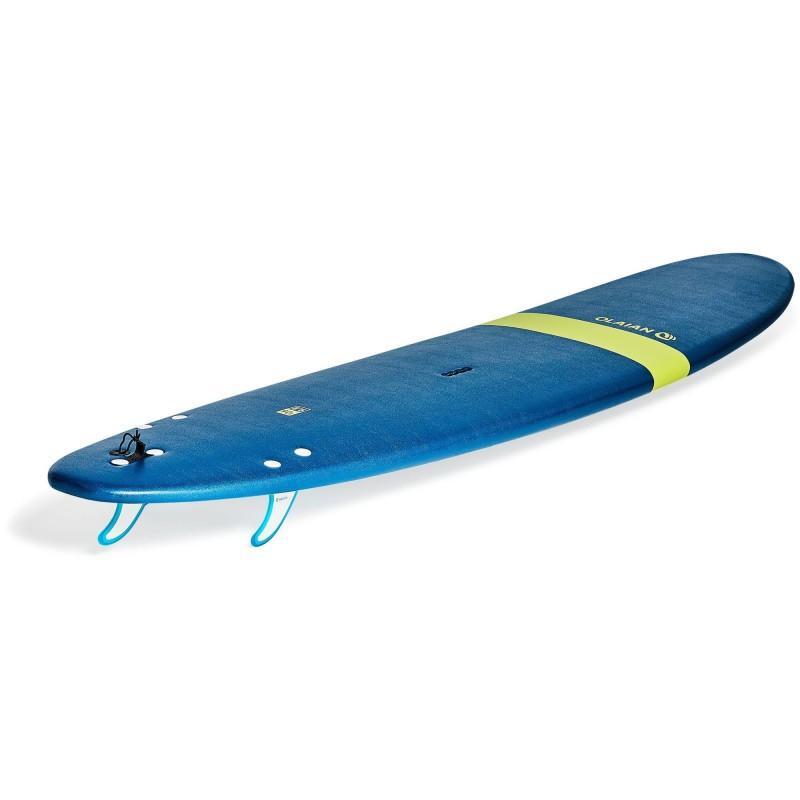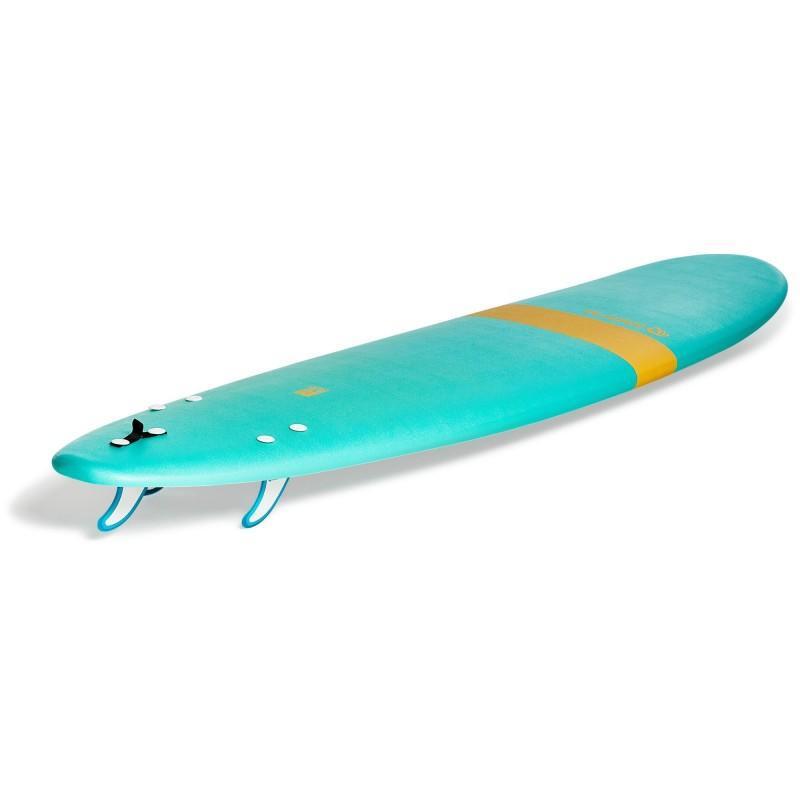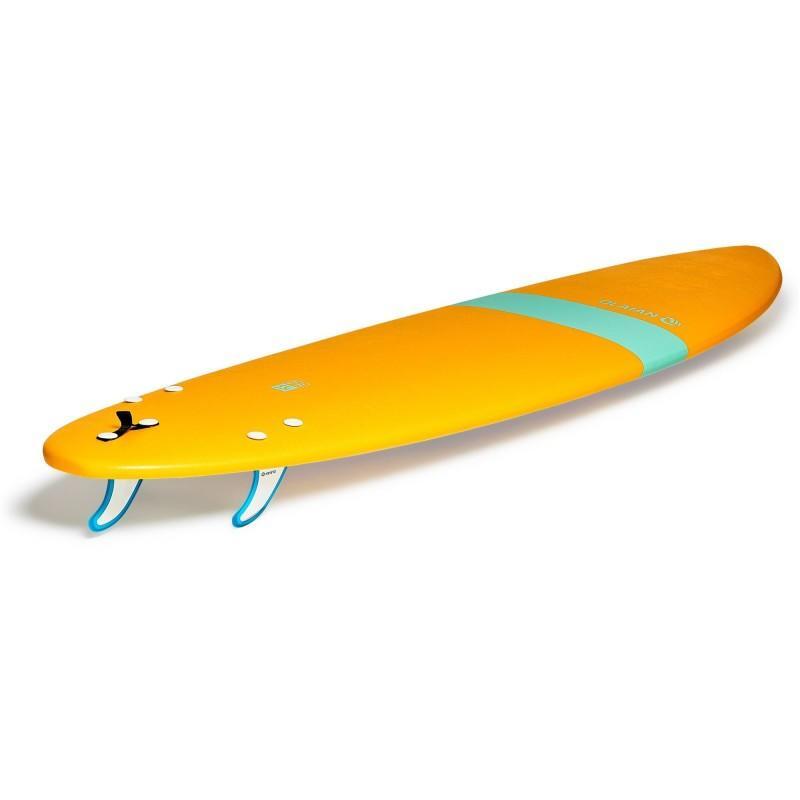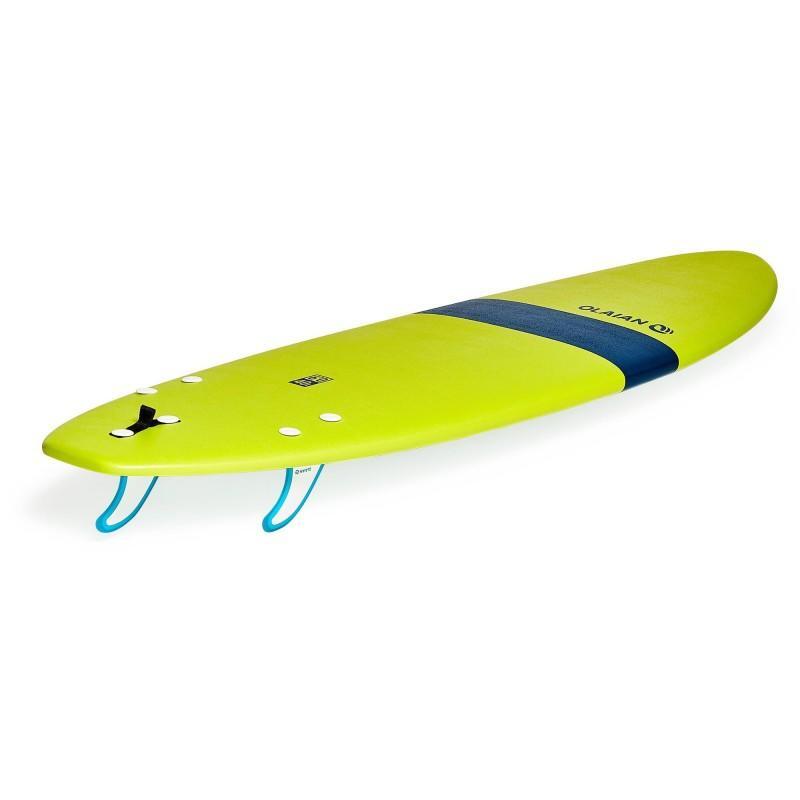Focus: foam surfboards
Whatever your level, the foam surfboard deserves a place in your quiver!
Beginner surfers, the foam surfboard is the board you need. It gives you the volume you need to paddle, catch waves more easily and help you take off. Once you are up on the board, it will help you keep your balance and is forgiving of the most common mistakes.
Intermediate surfers, our foam surfboards are designed to accompany you as you progress. They let you travel across the wave, catch more hollow waves and therefore gain speed.
Advanced surfers, a foam surfboard gives you the opportunity to surf mushy summer waves and beach breaks without the risk of injuring other surfers or yourself.




















